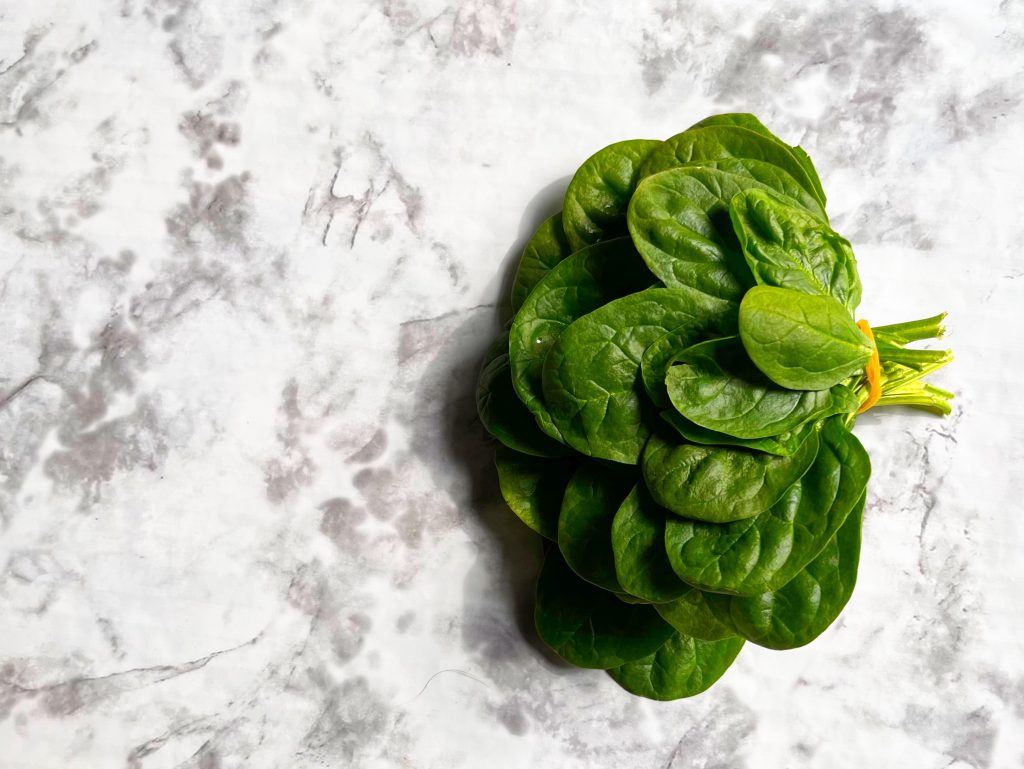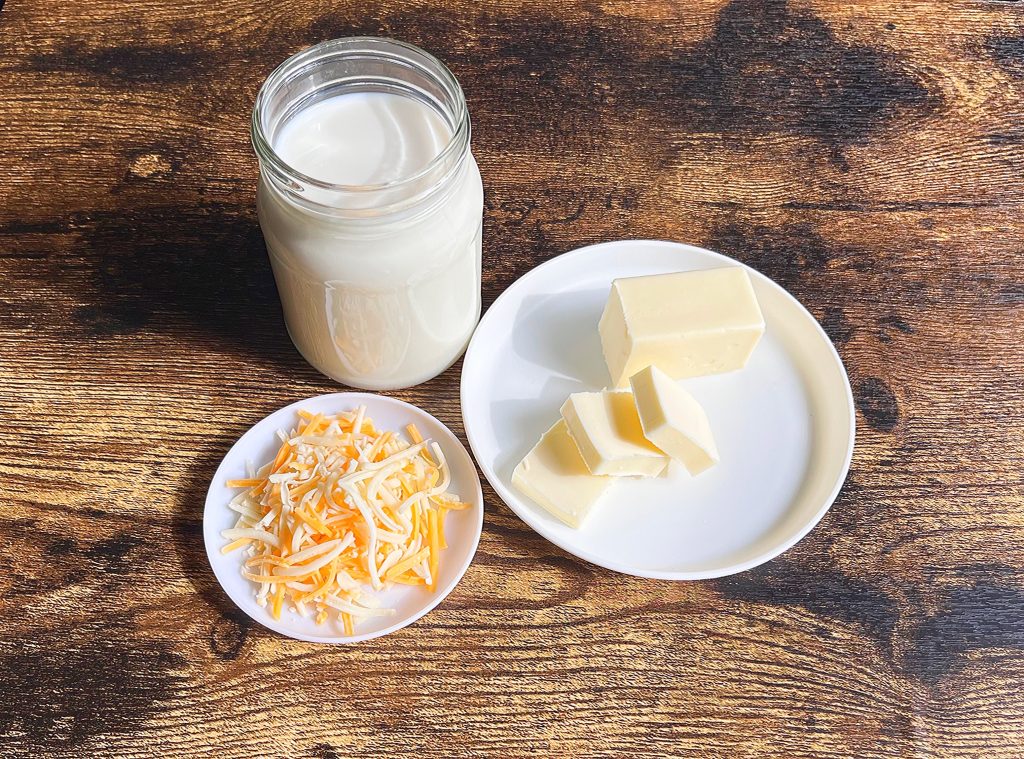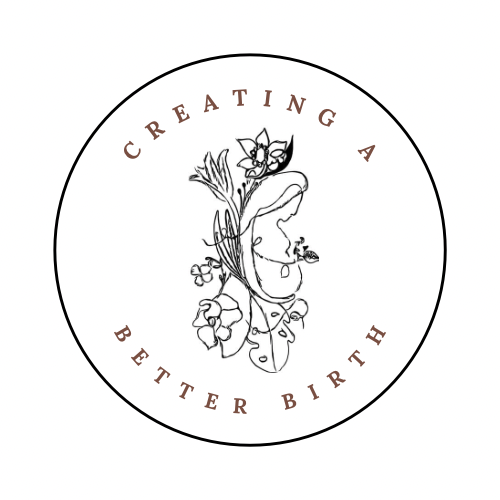
Making sure you get adequate nutrition while pregnant can seem daunting. Some people tell you to eat certain things, while others tell you to avoid them.
In today’s post, we will discuss a few safe essentials to have on hand for your daily diet while pregnant.
Important building blocks
There are a few vitamins and minerals that play a key role in supporting your baby’s growth and development, as well as supporting your body as you go through the many changes that pregnancy, postpartum, and breastfeeding may bring.
Your prenatal vitamin will help fill in the gaps of your nutritional needs. However, your prenatal covers the bare minimum of the vitamins and minerals needed to sustain your pregnant body and your baby’s growing body.
- Calcium: It’s important to make sure you’re getting at least 1000 mg of calcium daily. Calcium is essential to help your baby build strong bones, teeth, muscles, and nerves. Calcium is also important for upkeep in your bones, teeth, muscles, and nerves.
- Iron: When pregnant, your need for iron doubles. Be sure to talk with your doctor about what your specific iron needs are, but the average need is around 27 mg daily.
- Vitamin D: If you’re pregnant in the winter months, supplementing extra vitamin D is especially important. Make sure you’re getting at least 1000 IUs daily, as well as spending a little bit of time in the sun whenever possible.
- Choline: Choline isn’t a well-known supplement, but it’s extremely important for your babies cognitive development. Aim to get at least 450 mg minimum daily. Consuming enough choline each day can help prevent neural tube defects and promote healthy brain function in your baby.
- Folate: Many women take folic acid when they should actually be taking folate. Folate is extremely important for yours and your baby’s health, but it is most commonly known to reduce the risk of neural tube defects in your baby. Make sure you’re getting at least 600 micrograms of folate daily.
- Omega 3s: Better known as DHA, omega-3 fatty acids play an essential role in your baby’s brain and neural development as well as improving your own brain function. 300 mg per day is the average minimal need for a pregnant woman.
- Iodine: Iodine promotes your baby’s brain and nervous system development as well as improves your immune system. You should be getting at least 290 micrograms per day.

How do I make sure I get these vitamins and minerals in my diet?
It can seem daunting to make sure you’re covering all your bases when you eat. An easy way to make sure you’re eating properly is to simply keep these foods staples on hand. That will make it easier for you to get the nutrition you need daily without putting in too much extra effort and planning.
- Eggs: Eggs are an excellent source of choline! One egg yolk contains around 115 mg of choline. Eggs are also low in calories, high in protein, and contain around 5 g of good fat. Eggs are also high in iron, iodine, vitamin D, copper, manganese, selenium, and zinc. Eggs are also very versatile. So if you cannot stomach the thought of eggs by themselves, you can make them into something else! French toast, quiche, egg salad; the possibilities are endless!
- Dark, leafy greens: Anything super dark and green is excellent when growing another human! Kale, spinach, you name it! Dark green usually equals a vitamin packed super food. Kale and spinach specifically contain folate, iron, calcium, vitamin C, vitamin D, vitamin K, vitamin E, and, of course, fiber. Not only will you find tons of nutrients in your greens, but eating them will help you stay regular. Pregnancy can be a time of chronic constipation. Dark greens are great for your gut and helping everything flow smoothly.
- Dark red meats or organ meats: Not only is red meat an excellent source of protein (which your body very much needs when pregnant) but it is also super high in iron, omega-3 fatty acids, vitamin B12, vitamin B2, choline, folate, vitamin A, iodine, and copper. Dark red meats and organ meats (like liver) are nutrient dense super foods that contain an abundance of vitamins and minerals. One serving of liver contains up to three times as much choline as an egg. If you are unable to stomach the thought of eating organ meat or red meat, try supplementing with freeze dried desiccated, beef, liver or organ meat capsules. Bone broth is also a great option for the first trimester if you are not able to stomach eating something as heavy as red meat.
- Dairy products: This one can be tricky, as some people are sensitive to dairy products. If you are able, I would highly recommend that you consume dairy products on a regular basis. Cheese, yogurt, and milk will all help meet certain vital needs of you and your growing baby. Yogurt can be an excellent source of probiotics and healthy fats, while cheese and milk are great sources of several B vitamins, magnesium, calcium, and zinc. If you cannot tolerate traditional dairy products, try Greek yogurt or aged cheeses.
- Salmon: Salmon is rich in omega-3 fatty acids, protein, B vitamins, potassium, selenium, zinc, vitamin D, vitamin E, and vitamin A. Salmon is a very mild tasting fish so it’s an excellent option for pregnant women who don’t enjoy the taste of fish. There are so many delicious ways to cook salmon! Smoked, baked, glazed, and so many more! Salmon is also a low mercury fish, so no need to worry if you’ve been told to avoid fish due to high mercury. Consuming salmon while pregnant can improve your bone health and your immune function, as well as your growing baby’s bone health and immune function.
There are so many amazing foods that help support your body as well as your baby’s body while pregnant! A few other great options to keep on hand are berries, whole grains, avocados, fruit, sweet potatoes, and legumes. There is a whole world of delicious options that will give you and your baby everything you need. Pregnancy can be a great time to brand out and nourish your body like you never have before. Just make sure you continue taking your prenatal vitamins as well! Food alone should not be a substitute for a complex prenatal vitamin.
Disclaimer: All content and media on the Creating a Better Birth website is created and published online for informational purposes only. It is not intended to be a substitute for professional medical advice and should not be relied on as health or personal advice. Always seek the guidance of a qualified health professional with any questions you may have regarding your health or a medical condition. Never disregard the advice of a medical professional, or delay in seeking it because of something you have read on this Website.
If you think you may have a medical emergency, call your doctor or call emergency services. If you choose to rely on any information provided by Creating a Better Birth, you do so solely at your own risk.

Very nice post. I definitely appreciate this site. Stick with it!